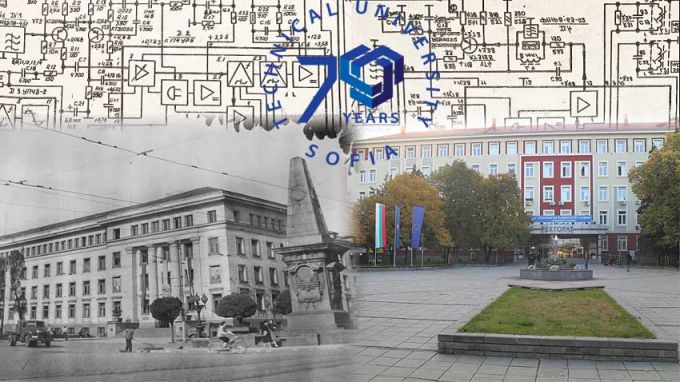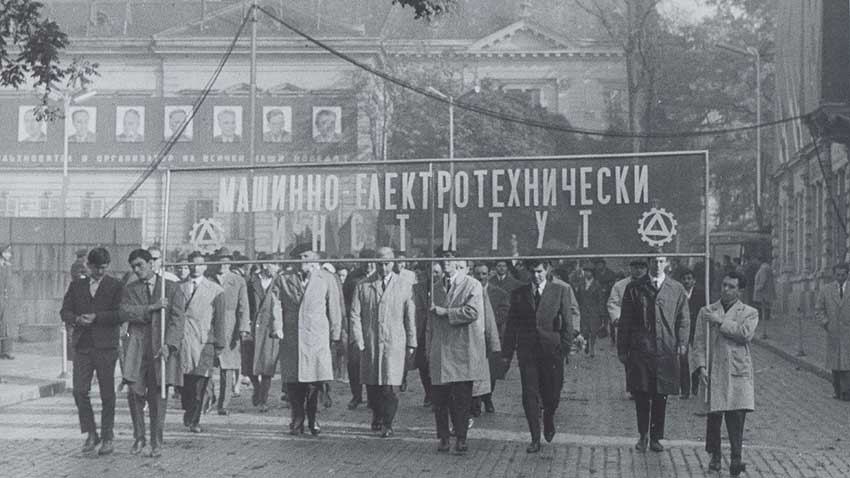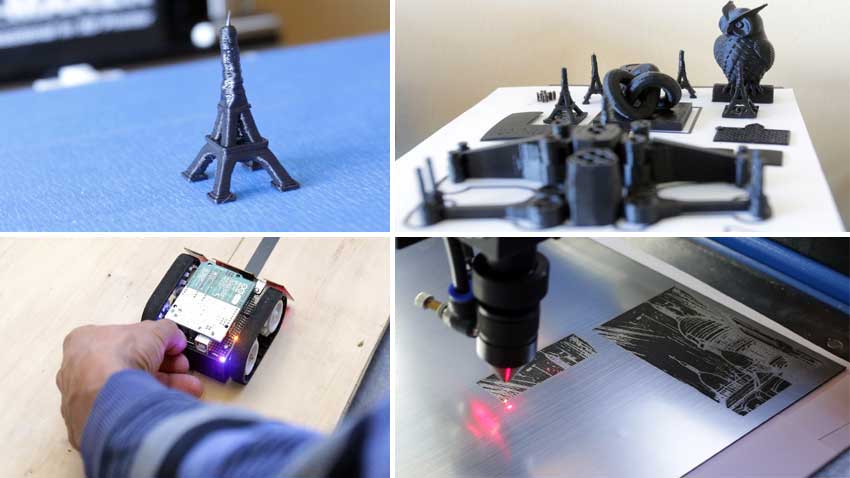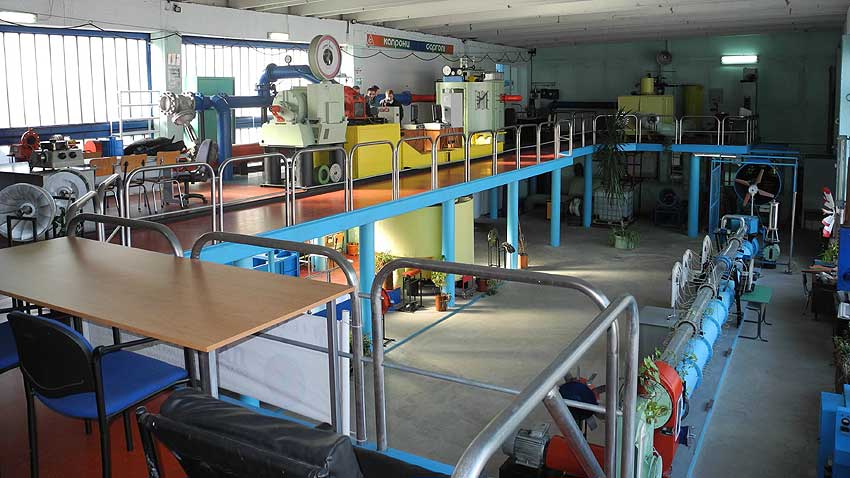 6
6
The start was given to higher engineering education in Bulgaria with the law establishing a Higher Technical School in Sofia, published in the Official State Gazette in June 1941. Classes started on 5, October 1942 and continued until the beginning of 1944 when the school was evacuated to Lovech and regular classes were suspended. By a Regency decree on 5, April 1945, the Machine Technical Faculty was renamed before it was even opened to Faculty of Mechanical and Electrical Engineering. On 24, October that same year, the Higher State School was transformed into a State Polytechnic.
 The post-war economic crisis did not leave the State Polytechnic unaffected – money had to be raised for building and equipping all departments and faculties. From June 1946 until May 1948, engineer Rady Nikolov was sent to Austria, Czechoslovakia and Germany three times to bring back technical literature, equipment and other technical supplies. There was no money, so he had to buy it all for… one ton of cigarettes. Incredible as it may sound, in those post-war years, cigarettes were Bulgaria’s gold. Engineer Nikolov’s flair for business helped him bring back to Bulgaria what were, in those days, cutting-edge universal testing machines.
The post-war economic crisis did not leave the State Polytechnic unaffected – money had to be raised for building and equipping all departments and faculties. From June 1946 until May 1948, engineer Rady Nikolov was sent to Austria, Czechoslovakia and Germany three times to bring back technical literature, equipment and other technical supplies. There was no money, so he had to buy it all for… one ton of cigarettes. Incredible as it may sound, in those post-war years, cigarettes were Bulgaria’s gold. Engineer Nikolov’s flair for business helped him bring back to Bulgaria what were, in those days, cutting-edge universal testing machines.
In 1952 lecturers, researchers and students at the university accomplished the first TV remote broadcast of images in Bulgaria. The first official TV broadcast took place on the night before 1, May 1954.
The implanted artificial heart control device that came out of the university laboratories in 1976, developed by the team of Prof. Nikolay Naplatanov was an achievement of national significance. In 1987 a device for remote monitoring of the psychological and physical condition of astronauts in flight was developed for Georgy Ivanov’s flight into outer space and was used on the Mir international space station.
Another scientific achievement of world significance is the counter-pressure casting method developed by Academician Angel Balevski and engineer Ivan Dimov. Approved in 1961, it is a method that guarantees that the metals produced have an optimal structure and no flaws.
 Unit No. 8 of the Technical University is the first building in Bulgaria that meets European requirements for a practically zero-energy consumption building. Under EU requirements, by 2018 all new and renovated buildings should have a close to zero consumption of energy. The national definition for this was developed by a Technical University team and this building is in itself proof of the viability of this project.
Unit No. 8 of the Technical University is the first building in Bulgaria that meets European requirements for a practically zero-energy consumption building. Under EU requirements, by 2018 all new and renovated buildings should have a close to zero consumption of energy. The national definition for this was developed by a Technical University team and this building is in itself proof of the viability of this project.
New university laboratories are already influencing the economic environment in Bulgaria. A leading company working in the sphere of climate and thermoregulation control in the automobile industry chose Sofia over Belgrade for branching out – the Bozhourishte Technological Park. In the words of the company’s director, Europe, it was a visit by a Technical University team that ultimately convinced them that Bulgaria is able to offer a suitable environment for training experts with the profiles they needed – electronics, 3D technologies, swift prototyping.

In 2015 students from the Technical University, Sofia came second out of a total of eight teams, competing in the “City car” hydrogen fuel cell category at the 30th edition of the Shell Eco-Marathon Europe international transport energy efficiency and innovation contest for students. 230 teams from 30 countries of Europe and Africa, aged 16 to 25 took part in the contest. In 2013 the hydrogen fuel cell automobile traveled 82.85 kms., on 1 kWh of energy – a new record for the students, who bettered their previous achievement by 20 kms.
In recent years, the university has been taking part in major international and national projects connected with: geometry control systems and modules for new linear accelerators in Germany and France; infrastructure for the quick digital construction of personal bone and tooth implants; development of a micro-satellite system for surveillance of the Earth from space (a project of the Aerospace Technologies, Research & Applications CASTRA cluster).
More than 15 lecturers have their own page in the Bulgarian Golden Book of Inventors for lifetime achievements. The university’s swift application end products can be seen at the world’s biggest expositions, from Germany to China.
The Technical University, Sofia currently has more than 10,000 students from Bulgaria and close to 1,000 from abroad in a total of 14 faculties. Since its establishment in 1945, the Technical University has trained thousands of engineers who have, through the years shaped the country’s latter-day economy putting their knowledge and skills to good use in all spheres in Bulgaria and many other countries around the world.
English version: Milena Daynova
Photos: Technical University, SofiaSkopje aims to attract cargo from Europe to Thessaloniki with a new railway line The construction of the railway line along Corridor 10 is a priority for North Macedonia, said North Macedonia’s Minister of Transport Aleksandar Nikoloski. He..
Language and cultural workshops "My Bulgarian Summer" once again take the children of Bulgarians living abroad to some of the most beautiful places in the country. A series of trips for children and students from 6 to 15 years of age..
The Bulgarian language is studied academically in Albania, much like in many other places around the world. Our lectorat is part of the Department of Slavic and Balkan Languages at the Faculty of Foreign Language Studies at the University of Tirana, and..

+359 2 9336 661
